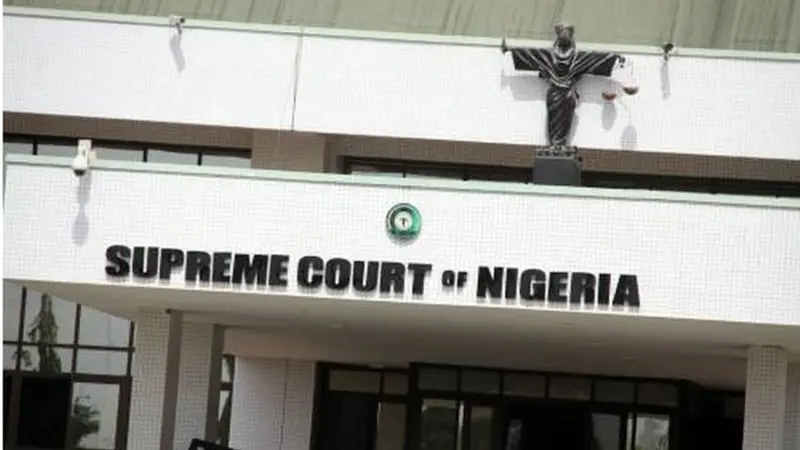(Analysis) Supreme Court Restores Full Autonomy to Local Governments, Ends Era of Caretaker Committees

By Lawrence Oladotun
In a historic and far-reaching judgment, the Supreme Court of Nigeria has redefined the constitutional and fiscal status of local government councils, delivering a decisive victory for grassroots democracy and bringing an end to decades of state interference in local governance.
The apex court’s ruling—described by legal scholars as one of the most consequential constitutional judgments in recent times—settles long-standing disputes over the independence, funding, and democratic status of Nigeria’s 774 local government councils.
At the heart of the case was a suit filed by the Attorney-General of the Federation (AGF) on behalf of the Federal Government, seeking to protect the constitutional autonomy of local governments. The 36 State Attorneys-General stood in opposition, arguing to preserve the long-held powers of state governments over local councils.
The questions before the Court
Between pages 2 and 8 of the judgment, the Supreme Court considered several fundamental constitutional questions that have shaped Nigeria’s political structure since 1999. Chief among them were:
Whether state governments possess legal authority to dissolve democratically elected local government councils and replace them with unelected caretaker committees or administrators.
Whether funds meant for local governments can legally pass through state-controlled Joint Allocation Accounts instead of being paid directly to local councils.
Whether delays or refusal by state governments to conduct local government elections violate the Constitution.
The case effectively placed Nigeria’s third tier of government—the local councils—at the center of a constitutional tug-of-war between federal supremacy and state autonomy.
The Local Governments’ Prayers
In pages 8 to 17, the AGF and supporting parties sought declaratory and injunctive reliefs aimed at restoring the full constitutional rights of local governments. The prayers included:
1. A declaration that only democratically elected officials can administer local governments.
2. An order that all allocations due to local councils from the Federation Account be paid directly to them, without interference or retention by state governments.
3. A pronouncement that caretaker committees, administrators, or interim heads appointed by governors are unconstitutional.
4. A perpetual injunction restraining states from further tampering with funds or delaying elections.
These prayers represented not only a legal contest but a moral and political one—an attempt to restore dignity to a tier of government long described as “the servant of the states.”
Supreme Court’s Groundbreaking Resolution
After extensive arguments and deliberations, the Supreme Court’s resolutions (pages 73–78) delivered a sweeping judgment that reaffirmed the constitutional independence of local governments.
The Court ruled that:
Only democratically elected officials can govern local councils; any caretaker or appointed administrator is unconstitutional.
Delays or failure to conduct local government elections by state governments constitute a breach of the Constitution.
All funds due to local governments from the Federation Account must be paid directly to them, and any contrary arrangement is illegal.
State laws or constitutional interpretations that permit temporary, appointed local administrations are void.
In a key interpretive shift, the Supreme Court examined the controversial use of the word “shall” in the Constitution—long exploited by state governments to justify discretion over local government funds and elections.
Traditionally, “shall” is read as a mandatory directive in legal drafting. However, the Court, applying what it termed a purposive and progressive rule of interpretation, ruled that in this case, “shall” must be understood in its functional and historical context—as a permissive duty that allows the federal government to directly fund local governments to safeguard constitutional intent.
A Blow to State Control
For over two decades, Nigerian state governments have exercised overwhelming control over local governments—often dissolving elected councils, appointing caretaker committees, and withholding funds. This subversion of grassroots democracy had become a persistent feature of Nigerian federalism.
The Supreme Court denounced these practices as “a jab to the eye of the Constitution,” stating that states had mistreated, misused, and abused the original intentions of the 1999 Constitution.
“The era of the state governments using caretaker committees, administrators, or interim heads to manage local government councils is gone,” the Court declared. “Henceforth, any person or authority other than a democratically elected council shall not administer the affairs of any local government in Nigeria.”
Implications: Local Governments Regain Life
With the ruling, local governments will now receive direct funding from the Federation Account—restoring financial independence that has been stifled for years. The judgment also ensures that local governments cannot be suspended or managed by unelected persons under any guise.
“This is the dawn of a new era for grassroots governance,” said by a lawyer, Kunle Ajala, who praised the Court’s courage. “Local governments can now function as true engines of development, not political appendages of state governors.”
Beyond fiscal autonomy, the judgment reestablishes local governments as a co-equal tier of government—democratically elected like the federal and state governments, with constitutional protections of tenure and fiscal control.
The Remaining Gap: Conduct of Elections
While the ruling provides sweeping protections for local governments, it leaves one practical question unresolved: what happens if a state government refuses to conduct local government elections?
Under the current constitutional framework, State Independent Electoral Commissions (SIECs) are responsible for organizing local government polls. The federal government has already hinted at pursuing a constitutional amendment to transfer this power to the Independent National Electoral Commission (INEC), to ensure credible and regular elections.
Development analysts and co-host of Journalists hangout program, Mojeed Jamiu warns that some states, having lost financial control, might exploit this procedural gap to frustrate the system by failing to hold timely elections. “It’s a legal loophole that could test the strength of this new order,” Mojeed said.
A Victory for Democracy and Development
For many Nigerians, the Supreme Court’s decision represents more than a legal victory—it is a long-awaited restoration of democratic governance at the grassroots.
By ending the decades-long dominance of governors over local councils, the judgment is expected to accelerate rural development, enhance accountability, and improve delivery of public services in health, education, and infrastructure.
“The local government is the government closest to the people,” a civic activist in Lagos said. “This judgment means community projects will no longer die because of political control from the state capitals.”
Looking Ahead
The Supreme Court’s judgment marks a constitutional milestone and a new chapter in Nigeria’s federal structure. It has redrawn the lines of authority between the three tiers of government, placing local councils squarely within their rightful constitutional domain.
The challenge now lies in implementation—ensuring compliance by state governments and building the institutional discipline required to sustain democratic governance at the local level.
As Nigerians celebrate this judicial victory, the words of one observer capture the mood of the moment:
“At last, our local governments can breathe. The people’s government at the grassroots has been freed from captivity.”








